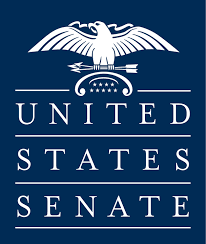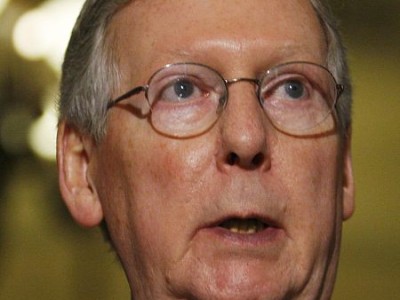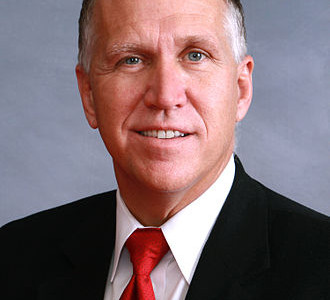U.S. Senate
Replacing McConnell
If the GOP flips the Senate, who will lead them on environmental issues?
Who will lead the Senate in 2025? The odds are that it will be a Republican. Democrats have a slim margin and face some close races, while all the GOP seats seem secure. That makes the question of who will replace Mitch McConell as GOP leader all the more important for climate and energy policy. …
Continue reading “Replacing McConnell”
CONTINUE READINGSearching for Votes in the Senate
Q: Can the Dems scrounge up the votes to block anti-environment actions? A: Maybe.
Paul Ryan and Donald Trump have vowed to roll back many environmental protections. The Senate seems to be the one barrier against anti-environmental moves by Congress. How strong is that barrier? The answer depends in part on whether the filibuster option remains open. If the filibuster rule remains intact, the Democrats’ 48 votes in the Senate …
Continue reading “Searching for Votes in the Senate”
CONTINUE READINGDueling California Drought Relief Bills Debated on Capitol Hill
Stark Differences Emerge Between Competing House and Senate Bills
What can and should the federal government do to assist the State of California in weathering the worst drought in recorded state history? While the U.S. House of Representatives is embroiled in a chaotic political debate over selection of a new House Speaker, the more deliberate consideration of new legislation continues apace in the Senate. …
Continue reading “Dueling California Drought Relief Bills Debated on Capitol Hill”
CONTINUE READINGWhy Does Mitch McConnell Hate the Environment?
McConnell’s environmental record is terrible — worse than Rand Paul or Jim Inhofe.
Mitch McConnell hates the environment. When I say McConnell hates the environment, I mean that he’s an environmental disaster. The environment would be in better hands if he were replaced as the Senate Republican leader by Ted Cruz or Rand Paul. Here’s a fun fact: Mitch McConnell’s environmental record is twice as bad as Ted …
Continue reading “Why Does Mitch McConnell Hate the Environment?”
CONTINUE READINGThom Tillis, the GOP Establishment, and the Environment
Tillis is not a Tea Party extremist on regulatory issues, but he’s also been no friend of environmental protection .
Thom Tillis’s victory in the North Carolina primary for U.S. Senate was widely seen as a victory for the Republican Establishment over the Tea Party. What does this mean on environmental issues? In other word, where do “Establishment Republicans” stand on the environment? In Tillis’s case, lowering regulatory costs seems to be the highest priority. …
Continue reading “Thom Tillis, the GOP Establishment, and the Environment”
CONTINUE READINGThe Senate Races and the Environment
In a series of posts, I surveyed the key Senate races — meaning those that didn’t seem to be “locks” for either candidate. (i didn’t include the McCaskill-Akin race, which McCaskill won.) The candidates differed greatly in their positions on the environment and on energy policy. Here is a quick summary of what was at …
Continue reading “The Senate Races and the Environment”
CONTINUE READINGKey Senate Races, Energy Policy and the Environment
In a series of posts, I’ve surveyed the key Senate races — meaning those that don’t seem to be “locks” for either candidate. These races will probably determine control of the Senate. The candidates differ greatly in their positions on the environment and on energy policy. Here is a quick summary of what is at …
Continue reading “Key Senate Races, Energy Policy and the Environment”
CONTINUE READINGGreen versus Anti-Green in the Big Sky State
The Montana Senate race features Democrat Jon Tester against Republican Dennis Rehberg. The difference between the candidates doesn’t require any elaborate explanation. Rehberg has a 6% lifetime rating from the League of Conservation Voters (quite a bit lower than Paul Ryan’s). Tester has a 87% LCV rating. That’s about all you have to know. It’s …
Continue reading “Green versus Anti-Green in the Big Sky State”
CONTINUE READINGConservative versus Ultra-Conservative in the Hoosier State
The Indiana race features Joe Donnelly, a conservative Democrat, against Richard Mourdock, a Tea Party Republican. Both are more conservative than their counterparts in other competitive Senate races. I discussed Mourdock briefly in a post about Tea Party candidates. He stands out for his endorsement of the view that climate change is a hoax. This …
Continue reading “Conservative versus Ultra-Conservative in the Hoosier State”
CONTINUE READINGHeller versus Berkley in the Silver State
As in other states, the Nevada Senate race features a gap between the “greener” Democratic candidate, Shelley Berkley, and the Republican Dean Heller. But it plays out a little differently. Heller’s website is strangely reticent about energy and environmental issues, while Berkley focuses heavily on the issues most relevant to Nevada — renewable energy and …
Continue reading “Heller versus Berkley in the Silver State”
CONTINUE READING








